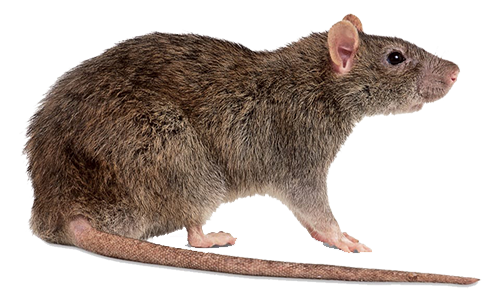Rodents
Sudbury Pest Control is here to help you address rodent issues which includes a large group of mammals characterized by their continuously growing incisor teeth.
What are rodents?
Some of the most common rodents include:
- Mice: Small rodents that are known for their quick movements and ability to fit through tiny gaps.
- Rats: Larger rodents that are known for their sharp teeth and scavenging behavior.
- Squirrels: Tree-dwelling rodents with bushy tails and strong hind legs for jumping.
- Chipmunks: Small ground-dwelling rodents with stripes on their backs.
- Guinea pigs: Domesticated rodents that are kept as pets.
How do I get rid of mice and rodents?
Dealing with mice or rat infestations can be challenging, as these pests are known to reproduce quickly and can cause damage to structures and spread diseases. The following are some steps to help deal with a mouse or rat infestation:
Identifying the type of rodent correctly is important in determining the most effective control methods.
It is recommended to seek the assistance of a professional pest control service, like Sudbury Pest Solutions, as we can offer a comprehensive solution that includes inspection, identification, and a customized treatment plan based on the severity of your issue.
Are rodents dangerous?
Rodents are dangerous in the sense that they can carry harmful diseases and can easily spread them. In addition to spreading diseases they can damage your home.
Can I prevent future rodent infestations?
It can be difficult to stop rodents from entering your home. The risk can be lowered by making sure all holes are sealed, especially those in your roof or under your home.
Mice and rats are also attracted to food, so reducing access to food and water sources is key to preventing infestations. This includes storing food in sealed containers, cleaning up crumbs and spills, and repairing any leaks.
Can chipmunks cause problems?
Chipmunks are little creatures that while cute and harmless to humans, can cause some problems if they decide to take up residence in your home or yard. Here are some of the problems that chipmunks can pose to your home:
- Chipmunks have strong teeth allowing them to chew through wood, plastic, and even concrete.
- If you have a garden, chipmunks may be attracted to it and may dig up your plants or eat your fruits and vegetables. They are especially fond of bulbs.
- Chipmunks may carry diseases such as Lyme disease, which can be transmitted to humans through tick bites. They can also carry fleas, mites, and other parasites.
- Chipmunks may decide to make a nest inside your home, such as in your attic or crawl space. This can lead to unpleasant smells and potentially even damage to your insulation or other parts of your home.
- Chipmunks can attract other pests such as snakes, which may be attracted to your property

